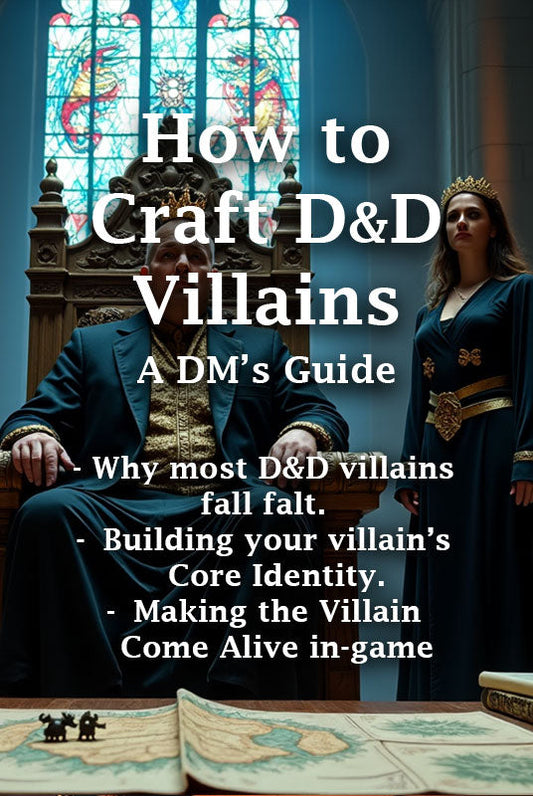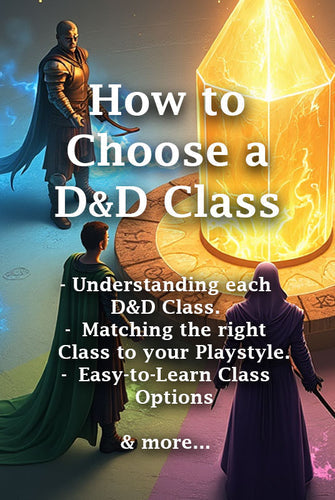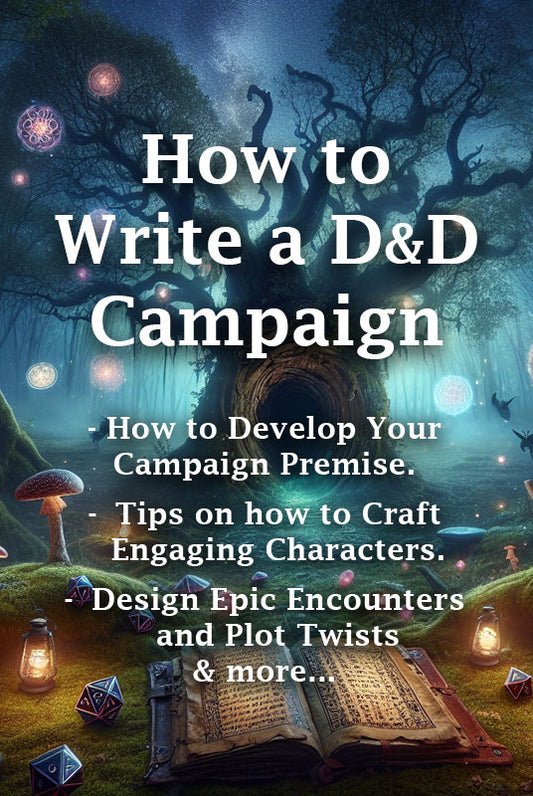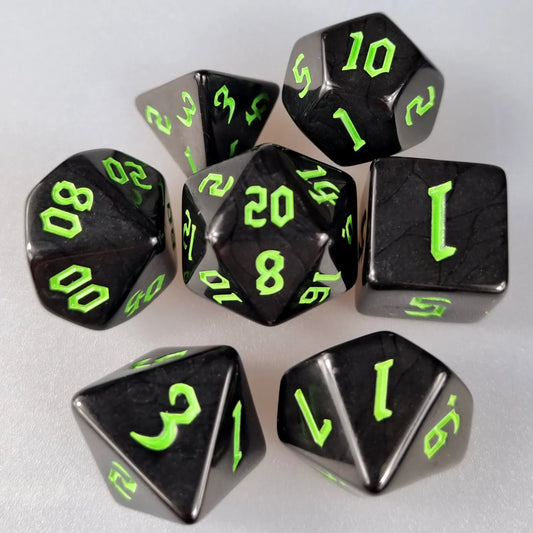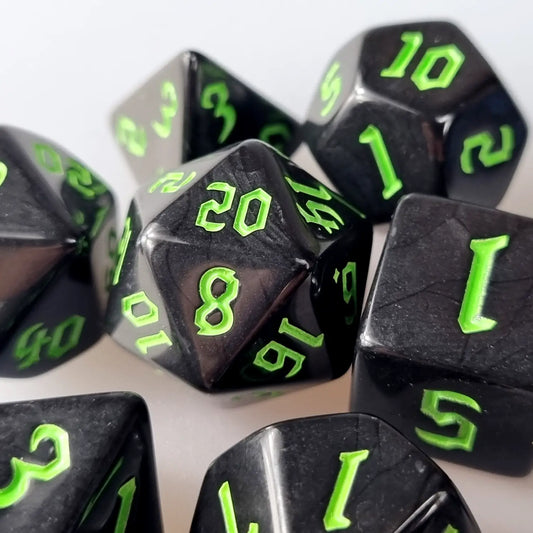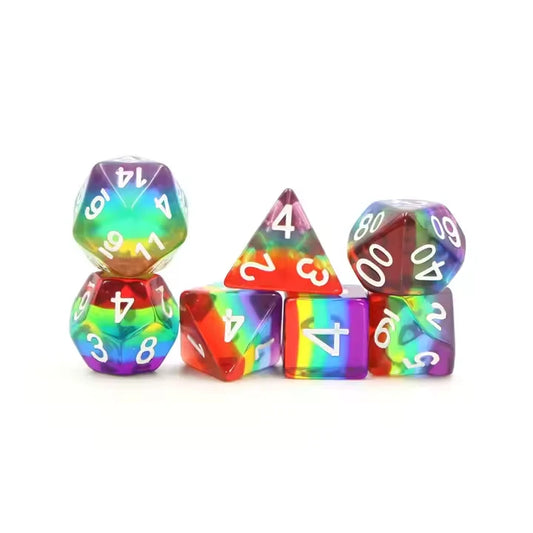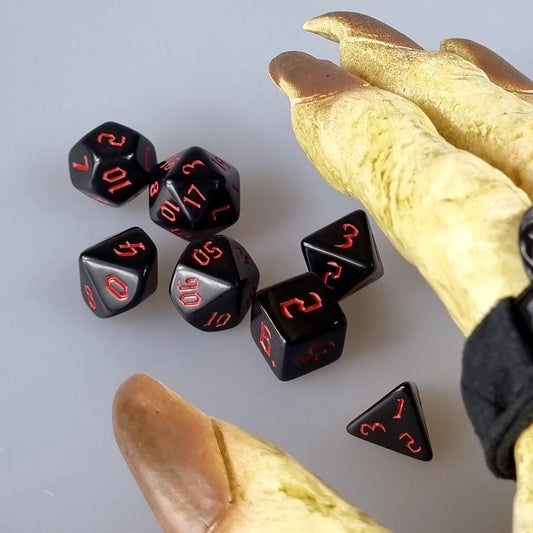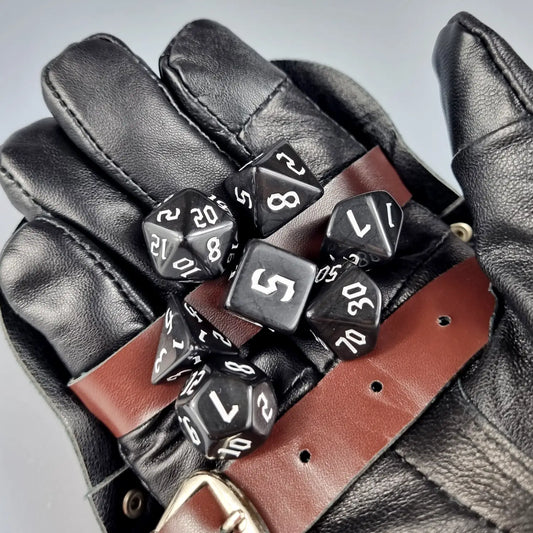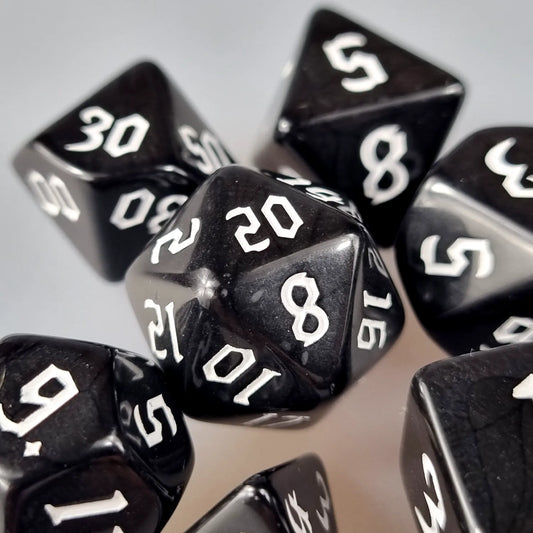
The role of a Dungeon Master (DM) in tabletop role-playing games is both challenging and rewarding. To become a better DM, you've got to cultivate a diverse set of skills and traits that enhance the gaming experience for everyone involved. From creativity and adaptability to fairness and enthusiasm, these qualities form the foundation of an exceptional DM who can come up with immersive worlds and unforgettable adventures.
We're going to explore the essential traits every Dungeon Master needs to excel in their role. We'll delve into the importance of flexibility, strong improvisational skills, and storytelling prowess. Additionally, we'll examine how patience, understanding, and the ability to balance encounters contribute to creating a fun and engaging atmosphere for players. By honing these qualities, aspiring DMs can elevate their game-running abilities and provide an unforgettable experience for their group.
Flexibility and Adaptability
Importance of flexibility
Flexibility is a crucial trait for Dungeon Masters to become better at their craft. It allows them to adapt to unexpected player actions and handle unforeseen situations with ease. A flexible DM can quickly adjust their plans and create engaging experiences on the fly, ensuring that the game remains fun and immersive for all participants.
Adapting to player actions
Players often think outside the established sandbox, making choices that may catch the DM off-guard. A skilled DM must be prepared to adapt to these unexpected decisions, whether it's allowing a monk to play as a blind character or incorporating unique character concepts into the game world. By embracing player creativity, DMs can create a more dynamic and engaging experience and handle any bulls*** that the players might throw their way.
Handling unexpected situations
When players go off the rails or make unexpected decisions, it's essential for DMs to remain calm and flexible. Rather than panicking or railroading players back to a predetermined path, adaptable DMs can improvise new content, repurpose existing ideas, or even involve players in the decision-making process. This approach not only keeps the game flowing smoothly but also enhances the collaborative storytelling aspect of the game.
Creativity and Imagination
Creativity and imagination are essential traits for Dungeon Masters to become better at their craft. You don't have to start your adventure in the local tavern, for example, novel ideas, twists and turns will keep the party interested and enthusiastic about the campaign.
Worldbuilding techniques
To create a compelling world, DMs should start small and expand gradually. This approach helps maintain focus and prevents overwhelming the players with unnecessary details. Begin by developing a starting town and its immediate surroundings, then gradually add adventure sites and expand the world as the campaign progresses. This method allows for organic growth and adaptation based on player actions and interests.
Creating memorable NPCs
Non-player characters (NPCs) are crucial for bringing the world to life. To make them memorable, give each NPC a distinct mannerism or physical action that sets them apart. Additionally, provide them with strong agendas or conflicting motivations to make them more dynamic and interesting. Pay attention to which NPCs resonate with the players and focus on developing those characters further.
Designing unique encounters
To create engaging encounters, consider using different encounter types that introduce narrative tension. Examples include tower defence scenarios, rescue missions, or boss fights with specific objectives. Incorporate random encounter tables to add variety and unpredictability to the game, while also defining the inhabitants and atmosphere of different areas in the world.
Strong Improvisational Skills
Strong improvisational skills are essential for Dungeon Masters to become better at their craft. The ability to think on one's feet allows DMs to adapt to unexpected player actions and create engaging experiences on the fly. This skill is vital because it enables DMs to craft immersive worlds and unforgettable adventures, even when faced with unpredictable scenarios.
Thinking on your feet
To improve quick-thinking skills, DMs should practise carrying on conversations with themselves, playing different roles. This exercise helps develop the ability to respond swiftly to unforeseen challenges and seize opportunities in dynamic environments. By embracing uncertainty and making decisions without complete information, DMs can cultivate confidence in their abilities and willingness to take calculated risks.
Improvising dialogue
When improvising dialogue, DMs should focus on the NPC's motivations and desires. Changing one's voice, using facial expressions, and incorporating hand gestures can make a significant difference when speaking in character. It's essential to consider the NPC's education level, disposition towards the players, and background to create authentic and engaging interactions.
Creating impromptu scenarios
To create impromptu scenarios, DMs should rely on their understanding of the game world and characters. Listening to players and being flexible with plans is crucial. When faced with unexpected situations, DMs can draw inspiration from movies or shows to describe locations and events. Embracing mistakes and using them to move the scene forward in new and unexpected directions can lead to exciting and memorable gameplay experiences.
Fairness and Consistency
Fairness and consistency are crucial traits for Dungeon Masters to become better at their craft. These qualities ensure that players feel respected and valued, enhancing their enjoyment of the game. A fair DM applies rules consistently and makes decisions with a rational connection to the facts at hand, avoiding arbitrary or capricious rulings.
Balancing challenges
To create engaging encounters, DMs should strive to balance challenges appropriately. This involves considering the party's strengths and weaknesses, as well as their current resources. A well-balanced encounter should push players to expend about 50% of their resources, but this can vary depending on the number of encounters planned before a rest.
Applying rules consistently
Consistency in rule application is vital for maintaining player trust. While DMs have the authority to change or edit rules, it's essential to apply these changes evenly to avoid the appearance of favouritism. Players generally accept rule modifications as long as they are applied consistently across the board.
Ensuring player agency
Preserving player agency is paramount in TTRPGs. DMs should avoid railroading players down a specific path and instead allow them to make meaningful choices that shape the narrative. This includes respecting player input, adapting the story based on their decisions, and ensuring that their actions have consequences within the game world.
Enthusiasm and Passion
Enthusiasm and passion are vital traits for Dungeon Masters to become better at their craft. These qualities inspire players and create an engaging atmosphere. A passionate DM invests time in researching the game world, developing unique voices for NPCs, and crafting immersive descriptions. This dedication shines through during sessions, enhancing the overall experience for everyone involved.
Conveying excitement
To convey excitement, DMs can use dramatic reveals, voice accents, and vivid descriptions. These techniques help immerse players in the world and bring scenes to life. By narrating critical moments with enthusiasm, DMs can elevate the game beyond mere dice rolls, creating memorable experiences that resonate with players long after the session ends.
Inspiring players
DMs can inspire players by setting an example of enthusiastic roleplay during combat and interactions. This encourages players to embrace their characters fully and engage more deeply with the game world. Additionally, teasing upcoming events or plot points can build anticipation and excitement among players, motivating them to participate actively in the story.
Maintaining energy throughout sessions
To maintain energy during long sessions, DMs should take regular breaks and check in with players about their enjoyment. Watching players' body language can help gauge engagement levels and adjust pacing accordingly. By remaining passionate and invested in the game, DMs can create an atmosphere of excitement that keeps players engaged and eager for more adventures.
Patience and Understanding
Patience and understanding are crucial traits to become a better DM. These qualities help manage diverse player types, handle rule disputes, and set appropriate expectations. By cultivating empathy and maintaining composure, DMs can create a positive gaming environment that encourages player engagement and creativity.
Dealing with different player types
DMs must adapt their approach to accommodate various player styles, from enthusiastic roleplayers to tactical combat enthusiasts. Recognising and catering to each player's preferences enhances the overall gaming experience and fosters a sense of inclusivity within the group. Personality types can be a tricky area to manage as a DM. Trying to involve everyone whilst there are strong, loud personalities in the party is difficult to do, but the best DMs will make scenarios work to make sure all players get their fair share of the limelight and gameplay.
Handling rule disputes
When disagreements arise over rule interpretations, DMs should remain calm and address the issue promptly. Encouraging open communication and being willing to listen to player concerns can help resolve conflicts and maintain a smooth gameplay flow.
Managing player expectations
Setting clear expectations from the outset helps prevent misunderstandings and disappointment. DMs should communicate their game style, house rules, and campaign themes to ensure players are aligned with the overall direction of the adventure.
Storytelling Prowess
Storytelling prowess is essential to become a better DM. Crafting compelling narratives involves creating engaging hooks that instantly immerse players in the story. These hooks can include mysterious strangers, calls to action, or dramatic discoveries. Pacing the story is crucial for maintaining player interest. DMs should balance fast-paced action with slower moments of character development and world exploration. Incorporating player backstories into the campaign adds depth and personal investment. By weaving character histories into the main plot, DMs create a more immersive and engaging experience. This approach allows players to feel their characters have a meaningful impact on the unfolding narrative.
Conclusion
The journey to become a better Dungeon Master is an ongoing process that involves honing a variety of skills and traits. From being flexible and creative to having strong improvisational abilities and storytelling prowess, these qualities have a significant impact on the overall gaming experience. By cultivating these traits, DMs can craft immersive worlds, handle unexpected situations with ease, and keep players engaged throughout their adventures.
In the end, the most important aspect of being a great DM is to create a fun and memorable experience for everyone at the table. This means balancing challenges, ensuring fairness, and maintaining enthusiasm throughout each session. By focusing on these key areas and continuously striving to improve, DMs can elevate their game-running abilities and provide unforgettable experiences for their players. Remember, the goal is to enjoy the journey together and create stories that will be cherished for years to come.
FAQs
How can one become an effective Dungeon Master in Dungeons and Dragons?
To excel as a Dungeon Master in D&D, consider these top tips for beginners: avoid over-preparing, ensure all players are engaged, respect the role of dice while controlling the game flow, pay attention to small details, foster a cooperative rather than adversarial atmosphere, remain flexible, encourage and reward creative roleplaying, and allow players to steer the game.
What essentials does a Dungeon Master require?
A Dungeon Master for Dungeons & Dragons needs several items to manage the game effectively. These include a set of dice, rulebooks, a monster manual, miniatures, a DM screen, a writing instrument, and a notebook or binder to keep things organised.
Who is recognised as an outstanding Dungeon Master in Dungeons & Dragons?
Matthew Mercer is highly regarded in the D&D community, particularly for his role as the Dungeon Master in a popular web series that spans three campaigns and several miniseries. His exceptional ability to bring characters to life and manage complex stories is celebrated among fans.
What does the abbreviation 'DM' stand for in gaming contexts?
In gaming, 'DM' stands for Dungeon Master. This role involves acting as the game master or referee, setting the scene for the players, describing the outcomes of their actions, and having a deep understanding of the game's rules to ensure smooth session management.

